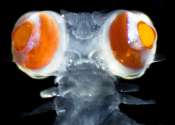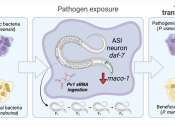Scientists share single-cell atlas for the highly regenerative worm, Pristina leidyi
An international team of scientists, including B. Duygu Özpolat at Washington University in St. Louis, has published the first single-cell atlas for Pristina leidyi (Pristina), the water nymph worm, a segmented annelid with ...









